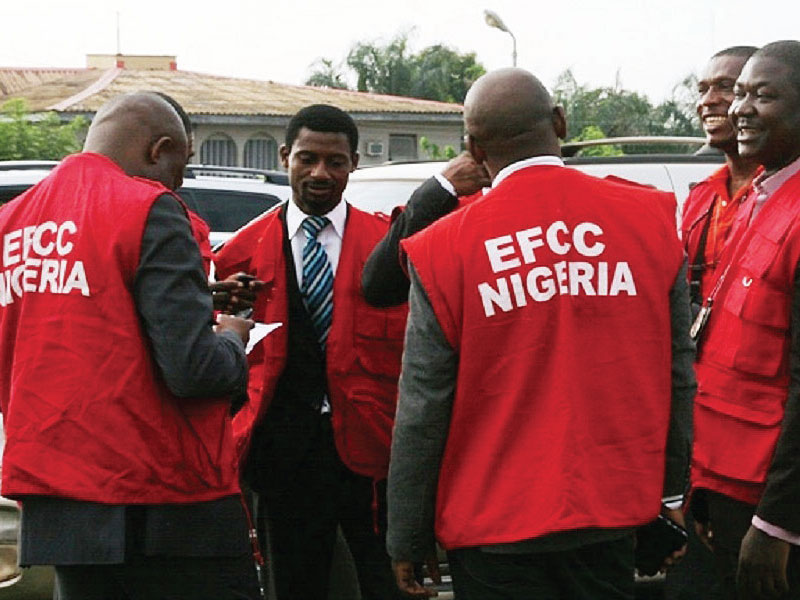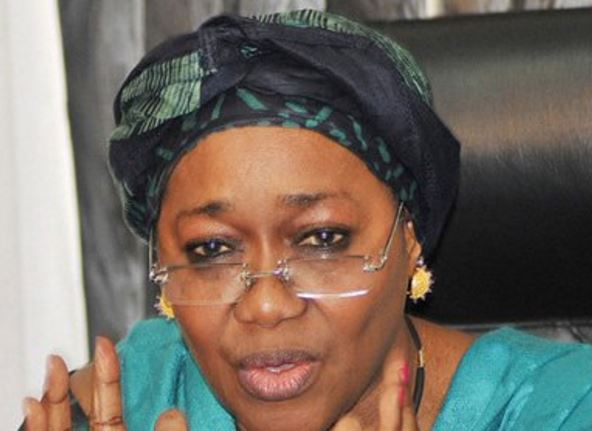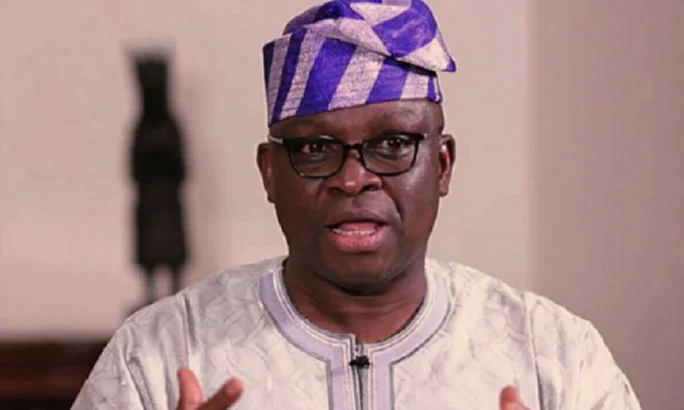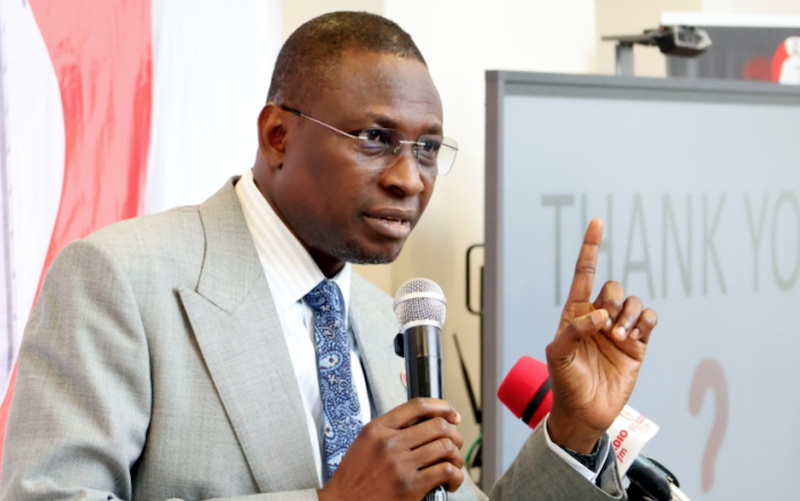Chairman of the Economic and Financial Crimes Commission (EFCC), Ola Olukoyede, has advised members of the public to apply care in choosing where to invest their money so as to avoid being ripped off in fraudulent schemes.
He gave the advice in Abuja on Thursday at a public lecture in commemoration of the 2025 African Union anti-corruption day, themed “Understanding Virtual Asset and Investment Fraud”, held at the EFCC’s headquarters.
According to Olukoyede, “Understanding virtual assets and investment fraud will not be complete without drawing serious attention to the role of the investing public in breaking the opportunistic practices of fraudsters floating various schemes to defraud Nigerians.
“We are all aware of the hues and cries of many investors in CBEX that lost their funds to the shenanigans of the operators. This unfortunate situation is preventable.
“The lessons derivable from the CBEX situation are very clear: the investing public do inadvertently aid fraudulent practices through lack of due diligence on schemes advertised to them.
“Another lesson is that investors hardly send suspicious transaction reports to the EFCC until they are defrauded. We must understand that no investment scam can succeed without the negligence of investors.”
He further noted that “Investment fraud, like virtual assets fraud, is spreading like wildfire across Africa,” adding that “fraudsters are exploiting vulnerabilities of desperate investors to defraud them through various dishonest schemes.
“Every exploitation of investors in any guise is considered a fraudulent act. Ponzi schemes rank as one of the most pervasive of such acts.”
He linked the rise in virtual assets fraud in the country to the designs of rogue politicians, who now use them to shield and secure their ill-gotten wealth.
“Our findings showed that fraudulent politicians are already perfecting schemes and hiding their loot in cryptocurrencies to beat the investigative dragnets of anti-corruption agencies.
“Stolen funds and unexplained wealth are being warehoused in wallets and payments for services are being done through this window. Investment schemes are also being facilitated through it,” he said.
While noting that cryptocurrency and virtual assets were not designed as tools of crime, but products of the Digital Age, he regretted that criminals put them to wrong use.
“Virtual assets are not fundamentally criminal. It is when they are wrongfully or fraudulently used that they become criminal. Technology is moving at a supersonic speed around the world.
“The advent of virtual assets is a response to one of the qualities of money as a store of value. However, as with every progressive innovation, fraudsters usually evolve ways of perverting their genuine purposes.”
Olukoyede reaffirmed the readiness of the EFCC to match every challenge that cryptocurrencies and other virtual assets throw up in the system.
“For us at the EFCC, virtual assets fraud and investment scam are not hard nuts to crack. Proactive and broad-based training and intelligence are bringing fraudulent schemes to the fore.
:We are ahead in every material sense and there is enormous proof of operational successes in this regard, especially the breakthrough in investigation and prosecution of the infamous CBEX scam,” he said.
The governor, Central Bank of Nigeria, CBN, Olayemi Cardoso in his speech, delivered by Muhammad Sani Abdullahi, deputy governor Economic Policy, noted that the present era of rapid technological transformation has made the adoption of digital financial services in Nigeria, including cryptocurrencies and tokenized investments increase exponentially.
The surge in digital innovation, he said, “has brought benefits, such as greater financial inclusion and also given rise to complex challenges, such as fraud and money laundering.”
Giving a breakdown of cryptocurrency usage in the country in recent times and their application in financial fraud, he disclosed that “In Nigeria, over $56 billion in crypto-related transactions were recorded between July 2022 and June 2023, making us Africa’s digital transaction leader.
“But this growth is not without consequences. The CBN Financial Stability Report 2024 reveals a 45% surge in financial fraud cases, with 70% of losses linked to digital channels, including unregulated virtual asset platforms.
“Furthermore, over 30 ponzi-style investment schemes exploiting digital currency narratives have been flagged by the SEC and other agencies. These developments pose major risks, including loss of consumer confidence, weakening of financial integrity and reputational challenges for Nigeria in the global financial system.”
Emomotiti Agama, director general of the Securities and Exchange Commission, SEC, in his speech decried the effects of corruption in Nigeria and Africa’s under-development in general, noting that the digital transformation of the global financial system has further thrown up more challenges to the continent.
“Corruption remains a significant impediment to Africa’s economic growth, social development, and investor confidence. Today, as digital innovation transforms financial systems, we face new challenges, particularly the rise of virtual asset fraud and sophisticated investment scams, exploiting unsuspecting investors.
“These threats undermine market integrity, erode trust, and divert resources meant for sustainable development,” he said.
The SEC, as a frontline regulator, he said, remained committed to strengthening investor education on recognizing and avoiding fraudulent schemes; enhancing regulatory frameworks to keep pace with evolving risks in virtual assets and digital investments; and fostering cross-border collaboration to combat corruption and illicit financial flows.
While the CBN oversees virtual assets used for payments, SEC is the primary regulator for virtual assets classified as securities or investment products.
The director general of the National Orientation Agency, NOA, Malam Lanre Issa-Onilu commended the EFCC “for its tireless work in defending Nigerians against the evolving threats in financial crimes.”
According to him, “experience has shown that deception is foundational to fraud and if its impact goes far deeper, it undermines citizens’ confidence in their country. Every Naira lost to fraud causes far-reaching effects.
“It is about a child pulled out of school, a livelihood ruined, and an enterprise destroyed. These crimes are not abstract. They affect people and our country pays dearly for it. At the National Orientation Agency, we believe that value orientation is our most powerful tool.
“That is why we launched a nationwide campaign several months ago against the spread of get rich quick syndrome.” The initiative, he said “is helping all Nigerians, especially young people to understand that lasting success comes from honesty and hard work and it takes time.”
Hussaini Ishaq Magaji, registrar general, Corporate Affairs Commission, CAC, while speaking on the virtual asset crime typology, noted that “Virtual assets, while offering significant opportunities for economic growth, also present new and complex avenues for fraud, money laundering and financial manipulation.”
This, he said, has made it “imperative that all regulators, institutions and stakeholders remained vigilant and proactive in responding to these emerging crimes.
“At the Corporate Affairs Commission we understand our critical role in corporate governance and financial transparency while collaborating increasingly with the Security and Exchange Commission and other sectoral regulators to implement necessary checks and enforce compliance in this area.”
The paper presentation on the theme of the event was done by ACE11 Dein Whyte, Head, Cybercrime Section, EFCC’s Headquarters.
He defined virtual assets “as digital representations of value that can be used for various purposes, including transactions, investment or as a medium of exchange,” pointing out, however, that there is a distinction between digital asset and fiat money.
The presentation beamed light on virtual asset and investment fraud as a growing crime typology that has become a thing of concern in Nigeria’s financial system and how the public can understand the red flags that indicate the wrong ventures to invest in.
He identified different types of virtual assets to include cryptocurrencies with the different tokens under them, such as the Bitcoin, Ethereum, Ripple and Litecoin and non-tangible tokens, which he said are digital representations of ownership of different kind of properties in a virtual platform.
The presentation elicited a question-and-answer session. Discussions and presentations on virtual assets and investment fraud were made across all the Zonal Directorates of the EFCC, all aimed at beaming searchlights on the issue.







